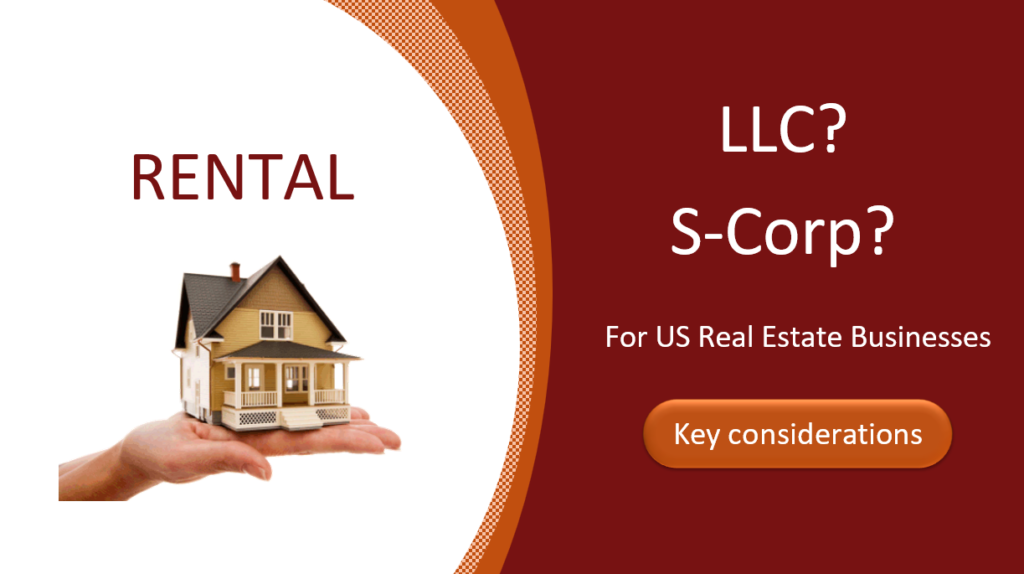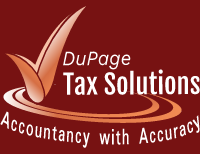
Tax and Accounting Services
About DuPage Tax Solutions
DuPage Tax Solutions is located in Naperville, IL. Our clients are mostly residents and small businesses within the Chicago metropolitan area – DuPage, Cook, Will, and Lake counties. Our remote work capabilities allowed us to extend our services nationwide. Today, we pride ourselves in having clients from all 50 states. Our virtual services are fast, easy, and convenient. Clients submit and review documents electronically through our secured online portal.
Business Structures for Rental Properties

When investing in rental properties, one of the most important decisions you’ll face is choosing the right business structure. Your choice can have significant implications for liability, taxes, and operational management. In this post, we’ll explore the most common business structures for rental properties and help you determine which might be the best fit for your investment goals.
Home » Business Structures for Rental Properties
Common Business Structures for Rental Properties
Sole Proprietorship
This is the simplest structure and requires minimal setup. As a sole proprietor, you have complete control over your rental business, but you are also personally liable for any debts or legal issues. This means your personal assets could be at risk if something goes wrong. This structure is ideal for those just starting out or managing a single rental property.
Limited Liability Company (LLC)
An LLC is a popular choice for rental property owners because it provides personal liability protection while offering flexibility in management and taxation. With an LLC, your personal assets are generally protected from business debts and lawsuits. Additionally, you can choose how you want to be taxed—either as a sole proprietor (pass-through taxation) or as a corporation. This structure is great for those with multiple properties or higher risk exposure.
Partnership
If you’re planning to invest in rental properties with others, a partnership might be the best option. There are general partnerships and limited partnerships, each with different liability and management structures. While partnerships allow for shared resources and responsibilities, keep in mind that general partners are personally liable for the partnership’s debts. This structure works well when you have trusted partners and a clear agreement in place.
S Corporation
An S Corporation allows you to enjoy the benefits of a corporation while avoiding double taxation. Income is passed through to shareholders and taxed at their individual rates. This structure can be advantageous for those who want the liability protection of a corporation but prefer pass-through taxation. Also, an S Corp eliminates self-employment taxes. However, passive rental income does not produce self-employment taxes, so an S Corp may not always be necessary for a rental property.
Learn more about S-Corporation’s pros and cons.

A Strategic Business Structure: An LLC for Each Rental Property
One strategy that many rental property owners consider is forming a separate Limited Liability Company (LLC) for each rental property. This approach provides robust liability protection, as each property is treated as an independent entity. If one property faces a lawsuit or incurs debt, the other properties remain shielded from any financial repercussions.
Creating an LLC for each rental also allows for tailored management and operational strategies specific to each property. Additionally, this structure can simplify bookkeeping and accounting, as you can track income and expenses for each property separately. However, it’s essential to consider the administrative costs and paperwork associated with maintaining multiple LLCs, as each will require its own registration, tax filings, and compliance obligations.
This structure is particularly beneficial for landlords with high-value properties or those looking to minimize risk in a diversified portfolio. Ultimately, the decision should align with your investment goals and risk tolerance, making it worthwhile to consult with a legal or financial professional to determine the best approach for your rental business.
Factors to consider for the rental business structure
When choosing a business structure for your rental properties, consider the following factors:
- Liability Protection: How much personal risk are you willing to take on?
- Tax Implications: Understand how different structures will affect your tax situation.
- Management Flexibility: Consider how involved you want to be in the day-to-day operations.
- Future Growth: Think about how your choice will impact future investments and expansion.
Navigating your options for your business structure
Choosing the right business structure for your rental properties is a crucial step in ensuring your long-term success as a landlord. Each structure has its advantages and disadvantages, so it’s essential to assess your individual needs, investment goals, and risk tolerance. Consulting with a legal or financial professional can provide valuable insights tailored to your specific situation, helping you make the best choice for your rental business.
You May Also Like These


House Hacking: What It Could Do for You

Should I buy a property now?

Rental Deductions: What are the Rules?
Ready to Take Control of Your Finances?
Contact us today for personalized tax, accounting, and advisory services tailored to your needs. Let’s work together to achieve your financial goals!

Contact Info
Ph. (630) 909 9700
Email: DPTax@DP-Tax.com
Mail address:
1552 South Route 59 #1037
Naperville, IL 60564
Business Hours
Mon: 11 am – 7 pm
Tue: 11 am – 7 pm
Wed: 11 am – 7 pm
Thu: 11 am – 7 pm
Fri: 11 am – 7 pm
Sat: 12 pm – 5 pm
Sun: CLOSED
Helpful Links
© 2024 DuPage Tax Solutions | Site Map | Privacy Policy | Disclaimer
